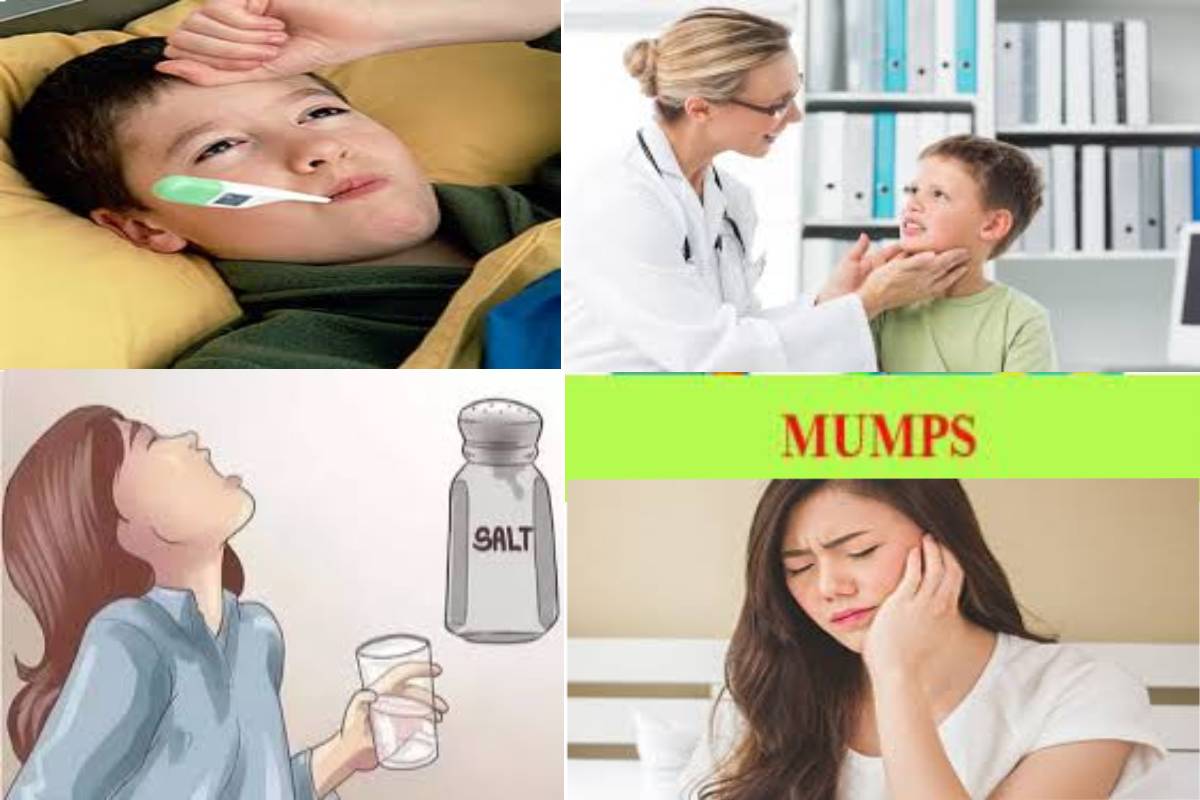Table of Contents
Mumps Definition
Mumps is the inflammation of the parotid glands, which are the largest salivary glands and are located on both sides of the face.
Although bacteria can cause it, its most common cause is virus infection.
The most frequent and that is responsible for mumps epidemics are paramyxoviruses or mumps viruses.
This infection causes painful enlargement of the salivary glands. They also affect other organs, especially in adults. Anyone can get mumps, although it is a disease that usually occurs in childhood.
What are the Causes of Mumps?
- Mumps is not as contagious an infection as chickenpox or measles.
- The times of most tremendous contagion of this disease are generally in late winter or early spring.
- Infection with paramyxovirus or mumps virus usually provides lifelong immunity.
- Infected people can increase the virus by coughing, sneezing, talking, sharing utensils (glasses, cutlery), or direct contact with saliva).
- The disease spread from the salivary glands begins to swell up to 5 days after the onset of inflammation.
What are the Symptoms of Mumps?
- Initially, pain and hardening appear in the area corresponding to the parotid gland (between the earlobe and the jaw), usually due to inflammation in the area.
- Characteristically, the earlobe tends to rise. After infection, the increase in the salivary gland’s size reaches its maximum volume after two or three days.
- Typically, one side swells first, and the other side boasts over two days, but it may only affect one side.
- It is also usually associated with fever, muscle pain, and headache.
Prevention of Mumps
- The best way to prevent mumps is through vaccination. Immunization against this infection is a combined vaccine, known as MMR, which protects against three viral diseases: measles, rubella, and mumps.
- It is an effective and very safe vaccine, and the administration schedule is two doses: generally, the first at 12 months and a booster dose at 2-4 years of age.
Complications of Mumps
- Complications are rare but possible and include inflammation of the meninges ( meningitis ) and brain ( encephalitis ), epididymis.
- Or inflammation of the testicle ( orchitis ), ovary ( oophoritis ), kidney ( nephritis ), heart muscle ( myocarditis ), or joints.
- The most frequent complication is orchitis, which appears in 15-30% of men who suffer from the infection after puberty, rare in children.
Diagnosis of Mumps
- The diagnosis of parotitis is clinical. The doctor makes it based on the symptoms and visible signs that the patient has, fundamentally, if the salivary glands are inflamed.
- This diagnosis is very reliable if it makes during an epidemic of this disease. At other times, a blood test may need to rule out other possible causes.
- Laboratory tests can identify its virus and the antibodies it generates, but they are rarely necessary to reach a diagnosis.
Treatments of Mumps
- In many cases, this disease disappears by itself, and treatment is limited to managing the symptoms that appear using antipyretic and anti-inflammatory drugs.
- Bed rest will advise according to the state in which the patient is.
- It usually recommends to drink liquids and gargle with warm salt water, in addition to applying hot or cold compresses to the neck area.
- Diet is another critical factor to consider. During those days, a soft and easy-to-chew diet recommends avoiding foods that promote more excellent saliva production -especially acidic and salty ones, to minimize pain during meals.
Other Data
- The prognosis for this infection is usually good, although other organs of the patient affected. Although it is rare for the disease to occur in adults, it is more severe and complications more frequently when it does it.
- The most feared is male infertility, which only occurs in very few cases.
- Orchitis or testicular inflammation usually affects a single testicle in most cases.
- Although mumps can indeed cause testicular atrophy in one-third of the patients in which these organs are affected, the sterility associated with this infection is exceptional.
Incidence of Mumps
- Before, it mostly affected children between the ages of 5 and 14. The incidence decreased dramatically in countries with routine vaccination, from 100-1,000 cases per year per 10,000 inhabitants per year to less than one point per 10,000.
- Furthermore, the age of most significant prevalence has shifted, with most cases now occurring in adolescents and young adults.
Conclusion
It mostly affected children between the ages of 5 and 14. The best way to prevent mumps is through vaccination.
It also usually associated with fever, muscle pain, and headache. It usually recommends to drink liquids and gargle with warm saltwater.

